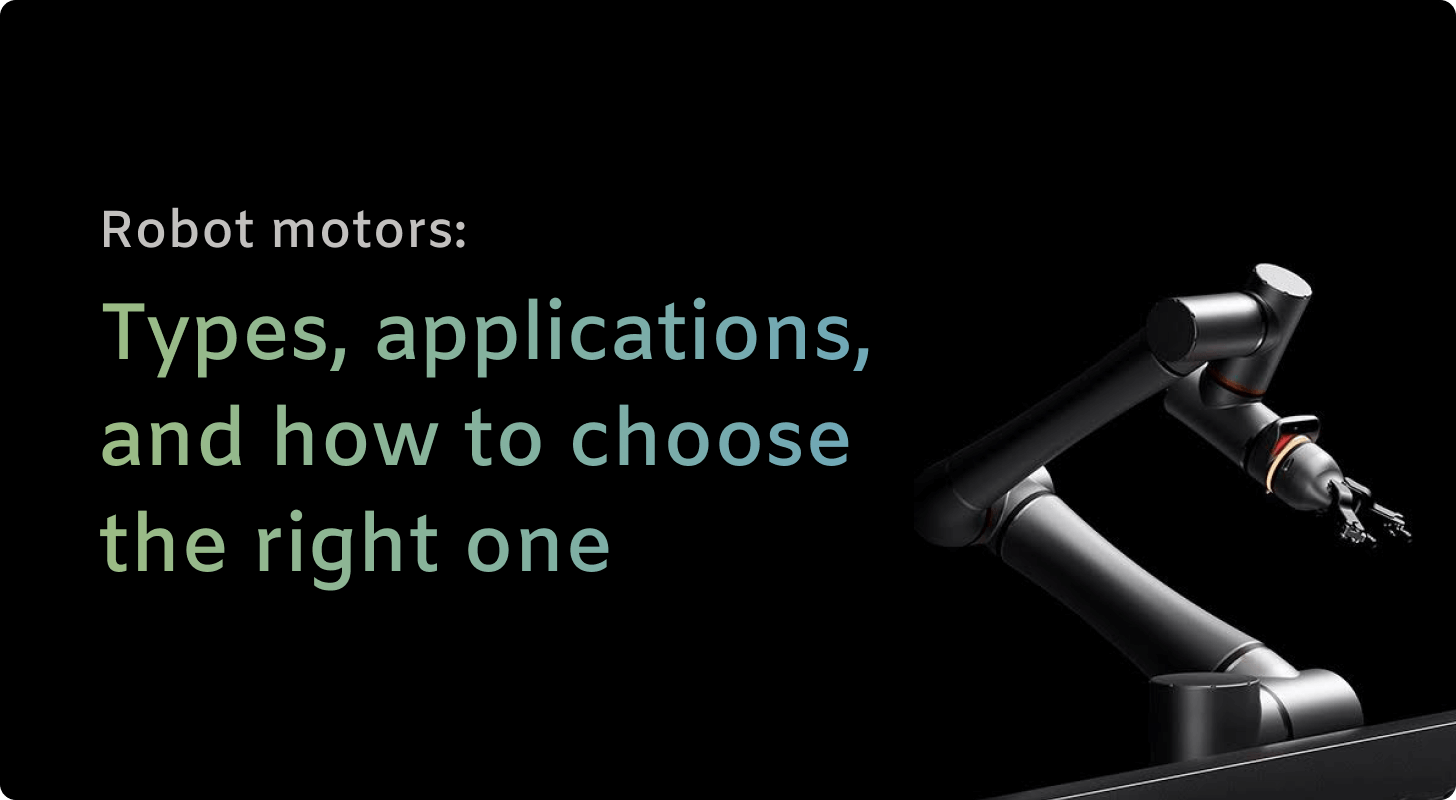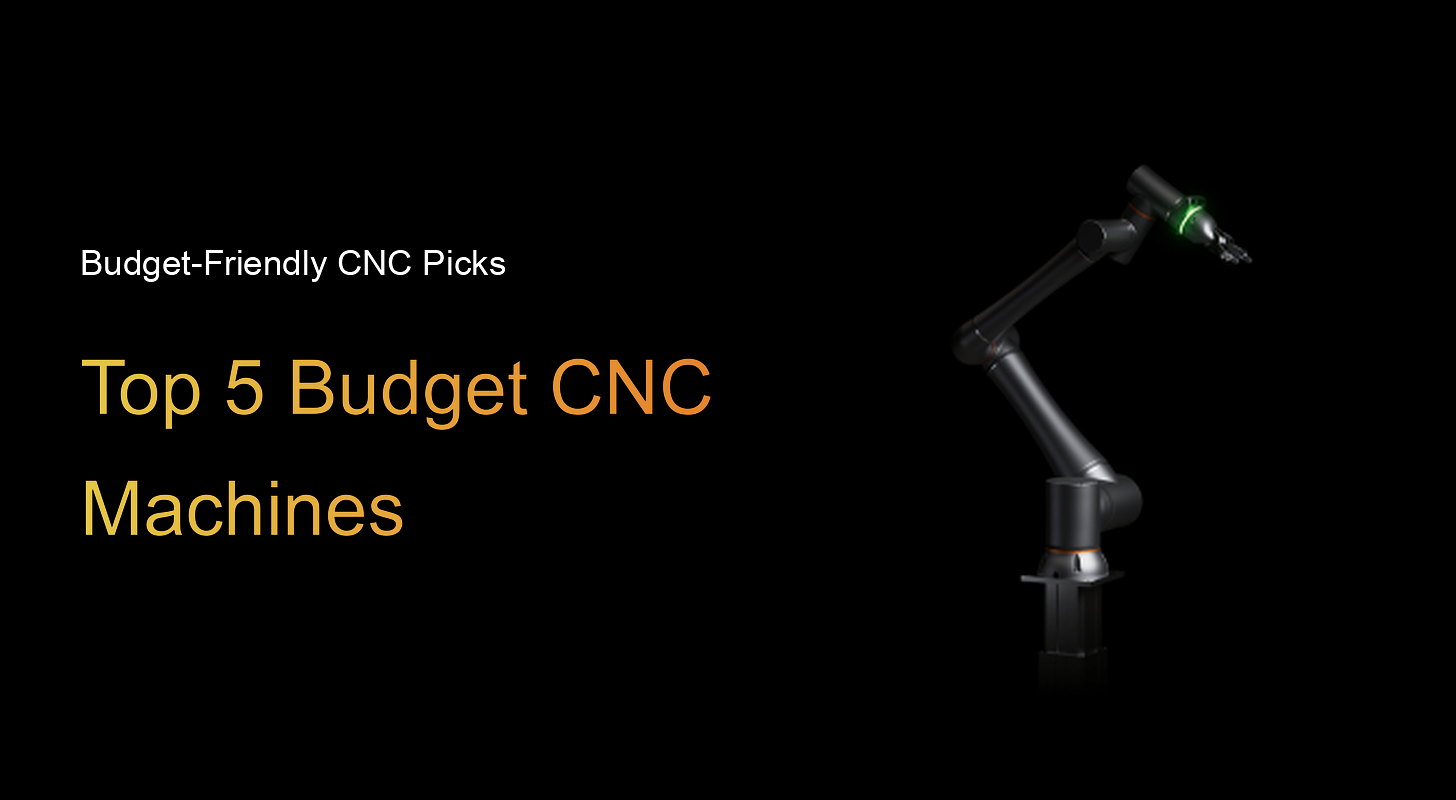Standard Bots offers cobot systems (including Core and Thor) with hardware, vision, safety, and software included for fast deployment. Robotiq equips UR cobots with grippers, sensors, vision, and apps.
Standard Bots hands you the keys to a fully-loaded machine, ready to work. In contrast, Robotiq lets you enhance your existing UR robot, like adding aftermarket parts to your car.
Standard Bots offers turnkey options, Robotiq offers modular options. The choice boils down to whether you want to build your perfect setup piece by piece, or need automation running by next week.
What’s the difference?
Standard Bots is a U.S. robotics company that delivers complete cobot systems like Standard Bots Core and Thor. Core comes with built-in vision, and both have collaborative safety and easy-to-use software included for quick, affordable deployment.
Robotiq is a Canadian company that designs accessories and software, adaptive grippers, wrist cameras, sensors, and apps, to expand what cobots, particularly Universal Robots, can do.
Choose Standard Bots if: You want a complete solution that includes everything from the arm to the software. And if you care about fast ROI and lower total cost, and need systems that cover a range of applications, from “everyday” work with Standard Bots Core to heavy-duty tasks with Thor.
Choose Robotiq if: You already use Universal Robots, prefer modular add-ons, and are comfortable with a higher total investment for a customized cell.
Meet Standard Bots: Features and highlights

Standard Bots builds complete cobot systems designed for quick setup, safety, and reliability. Our lineup includes Core for “everyday” tasks and Thor for heavy-duty automation. Both use the same no-code software, integrated vision, and collaborative safety design, supported by U.S.-based engineers for smooth deployment.
Core handles machine tending, welding, and part handling with speed and accuracy. It’s ready to test within hours and run within days, not weeks. Thor expands the platform to heavier industrial workflows, combining high payload capacity and precision with a compact, collaborative build that keeps operations efficient and flexible.
Meet Robotiq: Features and highlights

Robotiq builds accessories and software that enhance the capabilities of existing cobots, especially Universal Robots. Its ecosystem of grippers, cameras, sensors, and URCap software makes it easier for manufacturers to build custom automation setups using the robots they already own.
Standard Bots vs. Robotiq: Feature-by-feature comparison
Key features at a glance
Setup and deployment
Setup defines how fast manufacturers can move from delivery to production.
- Standard Bots: Standard Bots systems arrive fully configured with vision, safety, and software already in place. Programming happens directly through a touchscreen, allowing production within hours instead of weeks.
- Robotiq: Robotiq requires integration with Universal Robots cobots. Each accessory, such as grippers or cameras, must be installed, calibrated, and linked through the URCap interface, which often adds extra setup time.
Winner: Standard Bots
Hardware and performance
Hardware strength determines payload range, reach, and flexibility across applications.
- Standard Bots: Standard Bots offers full cobot systems designed for industrial work. Core handles 18kg payloads, whereas Thor reaches 30kg payload capacity with a 2m span. Core includes integrated 3D vision, while both Thor and Core have built-in collaborative safety that supports tasks like CNC tending, welding, and palletizing.
- Robotiq: Robotiq provides modular accessories for existing UR cobots. Performance depends on the chosen arm and accessory combination, making it flexible but less powerful than a dedicated system like Thor.
Winner: Standard Bots
Software and usability
Ease of programming affects how quickly teams adapt and scale automation.
- Standard Bots: Standard Bots features a no-code platform with drag-and-drop controls, built-in vision tools, and job scheduling. Even first-time users can teach paths or create workflows in minutes.
- Robotiq: Robotiq runs within the URCap software environment, which keeps the interface familiar but requires managing separate plugins for each accessory. This adds steps and coordination between modules.
Winner: Standard Bots
Support and scalability
Ongoing support and scalability determine how automation grows over time.
- Standard Bots: Standard Bots offers fast, direct U.S.-based support and frequent software updates. The unified platform across Core and Thor makes scaling from one system to many straightforward.
- Robotiq: Robotiq maintains a large global network of distributors and community resources. However, hands-on integration services are usually provided through third-party partners rather than directly by Robotiq.
Winner: Standard Bots
Pricing comparison
Pricing between Standard Bots and Robotiq reflects two different approaches to automation. Standard Bots sells complete systems at a fixed cost, whereas Robotiq offers modular accessories that add to the price of a Universal Robots setup.
Standard Bots:
- Core costs $37,000, which includes the robot arm, vision system, safety features, and no-code software.
- Thor lists at $49,500, delivering a 30kg payload, 2m reach, and IP69K protection in one package.
- Both systems are ready to deploy and require no additional integration costs.
Robotiq:
- Robotiq’s products are priced individually. When paired with a Universal Robots cobot, a complete setup usually ranges from $60,000 to $80,000, depending on the arm model, chosen accessories, and installation labor.
- Costs can rise further for multi-application configurations.
Verdict: Standard Bots provides a predictable, all-in-one pricing model that simplifies budgeting and speeds ROI. Robotiq offers flexibility but requires higher upfront investment when accessories and integration are added.
Which is better for your business?
The better fit for your business depends on how you plan to automate and what resources you already have.
Choose Standard Bots if:
- A complete solution is the goal: Standard Bots Core comes with built-in 3D vision, while both Core and Thor include the arm, collaborative safety, and no-code software in one package, reducing integration steps and hidden costs.
- Upfront cost and ROI are critical factors: Core is priced at $37,000, which makes it far more accessible than a UR cobot with Robotiq add-ons.
- Ease of deployment matters: With no-code programming, tasks can be set up in days, allowing teams without robotics engineers to get started quickly.
- Coverage for different workloads is needed: Core is ideal for work like CNC tending, while Thor handles heavier jobs such as palletizing and machine loading, giving flexibility across applications. Both offer surgical precision.
Choose Robotiq if:
- Your factory already runs Universal Robots cobots: Robotiq products are built for the UR series, making them a natural extension if you have UR5e or UR12e models in place.
- Modular upgrades are a priority: Adaptive grippers, wrist cameras, and force sensors can be added as needed. It gives existing cobots new capabilities without replacing the base robot.
- Production changes frequently: Robotiq’s add-ons are designed for fast redeployment, which helps when workflows shift often or product lines vary.
- Higher investment is acceptable: A complete UR cobot setup with Robotiq accessories and integration usually costs between $60,000 and $80,000. The upfront spend is higher, but you gain flexibility in return.
Summing up
Standard Bots and Robotiq approach automation in very different ways. Standard Bots focuses on delivering complete cobot systems like Core and Thor that come ready to use, with built-in vision, safety, and programming at a lower upfront cost.
Robotiq is all about expanding the capabilities of Universal Robots’ cobots with grippers, sensors, and vision tools, making it a strong option for factories that already have UR hardware in place.
The choice depends on what you value most. Standard Bots offers an affordable, turnkey path to automation with faster ROI while, Robotiq excels at flexibility and modular upgrades,
A better option is simply the one that aligns with how your factory operates today and where you want it to be tomorrow.
Next steps with Standard Bots’ robotic solutions
Looking to decide between Standard Bots and Robotiq? Standard Bots Core and Thor are perfect six-axis cobot addition to any CNC setup, delivering unbeatable precision and flexibility.
- Affordable and adaptable: Core lists at $37k and Thor at $49.5k, offering high-precision automation at nearly half the cost of conventional systems.
- Precision and power: With ±0.025mm repeatability, Core’s 18kg payload and Thor’s 30kg, both handle everything from small-part handling to high-volume palletizing with accuracy and consistency.
- AI-driven simplicity: The intuitive no-code interface and integrated vision let operators teach, run, and adjust jobs in minutes, no external coding or integration required.
- Safety-first design: Vision and collision detection keep operations safe and collaborative, making both systems ideal for flexible factory floors.
Schedule your on-site demo with our engineers today and see how Standard Bots Core and Thor can bring precision automation to your shop floor.
FAQs
1. What is the difference between Standard Bots and Robotiq?
The difference between Standard Bots and Robotiq lies in their approach to automation. Standard Bots builds full cobot systems with vision and no-code software included. Robotiq focuses on accessories for Universal Robots, which require extra integration and higher setup costs.
2. Does Robotiq sell robots or only accessories?
Robotiq sells accessories and software, not complete robots. Its products integrate mainly with Universal Robots cobots. This lets manufacturers upgrade existing systems step by step without replacing entire setups, making it a flexible option for gradual automation.
3. How much does a Robotiq solution cost?
The cost of a Robotiq solution depends on the accessories and robot used. Market data shows a UR10e machine-tending cell priced at $57,874.65 plus a Robotiq 2F-85 at $5,825 and a Robotiq Wrist Camera at about $7,846. Together they total around $71,500 before tax, training, and integration. The UR robot alone costs between $38,363 and $49,596.
4. What makes Standard Bots Core different from other cobots?
Standard Bots Core is different from other cobots because it is sold as a complete system. At $37,000, it includes vision, safety features, and no-code software. With an 18kg payload, 1.3m reach, and ±0.025mm repeatability, Core performs precise and heavy tasks easily.
5. Is Core cheaper than Universal Robots with Robotiq add-ons?
Standard Bots Core is cheaper than Universal Robots with Robotiq add-ons. A UR5e costs about $38,363 and a UR12e about $49,596. With Robotiq 2F-85 and Wrist Camera, the total is roughly $71,500. Core’s $37,000 price reduces both upfront and integration costs.
6. Which solution offers faster ROI: Robotiq or Standard Bots?
Standard Bots offers faster ROI because its cobots come ready to deploy with built-in software. Core and Thor can go live within days. Robotiq suits facilities that already use Universal Robots and want to extend their hardware’s life with new accessories.
brighter future
Join thousands of creators
receiving our weekly articles.










